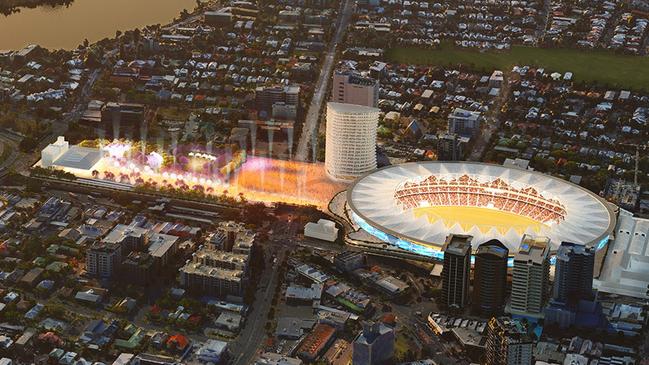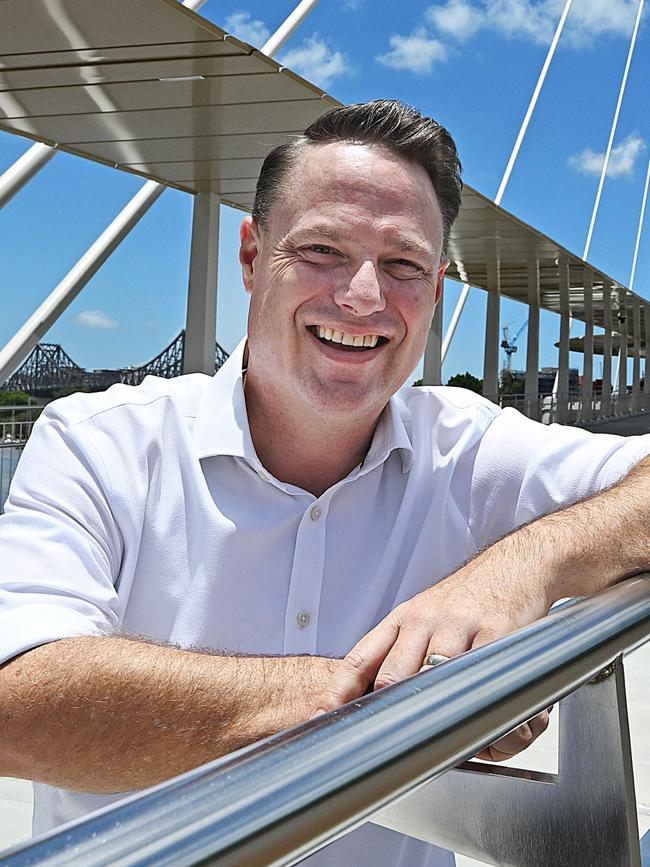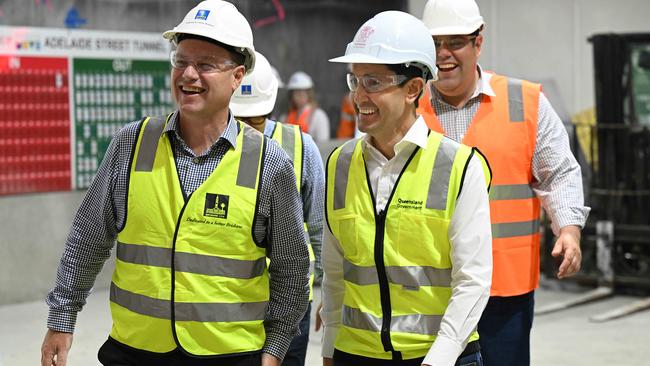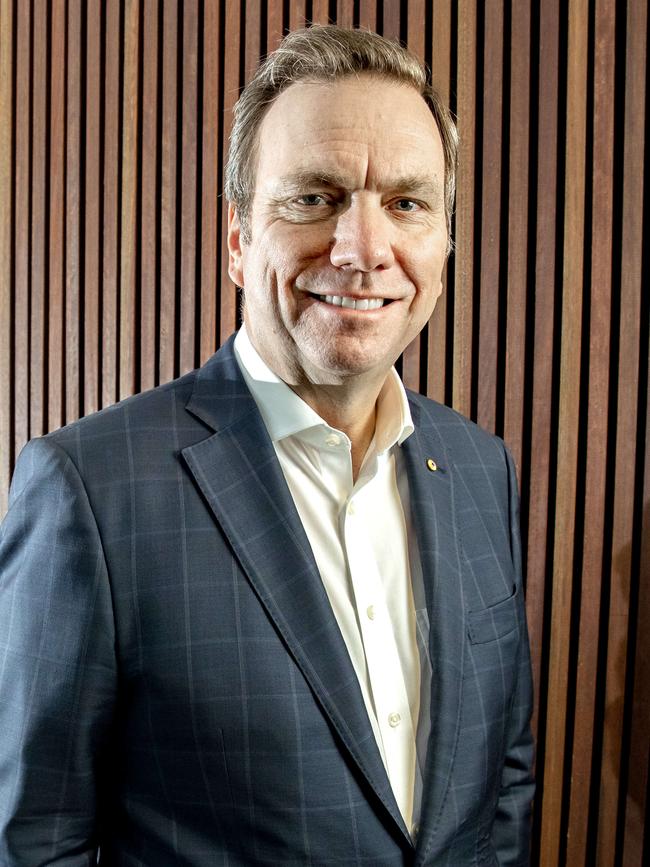New Olympic stadium needed as Gabba reaches ‘end of life, says Brisbane mayor
A new front has opened up in the battle over Brisbane’s 2032 Olympic venues, as the mayor leads a fresh push backed by hundreds of public submissions for private funding for a new stadium.

A new front has opened up in the bitter battle over Brisbane’s 2032 Olympic Games venues, as the mayor leads a fresh push backed by hundreds of public submissions for private funding for a new stadium.
Lord Mayor Adrian Schrinner has urged the head of a review of the city’s stalled Olympics infrastructure program to consider a public-private partnership to pay for a new stadium for the Queensland capital.
In a letter to review chair Stephen Conry, Mr Schrinner reiterated his support for a new oval stadium to be built ahead of the Games, saying it is needed to host the Brisbane Lions, cricket and concerts, and replace the Gabba as it approached “its end of life”.

The Games Independent Infrastructure and Coordination Authority was set up this month by the newly elected Crisafulli government to conduct a 100-day review of the venues program after plans for a $2.7bn rebuild of the Gabba were abandoned by the former Labor government.
Despite Liberal National Party Premier David Crisafulli telling voters ahead of the October 26 state election that he was against a new stadium, the terms of reference for the review allow the panel to explore “new” venues, as well as upgraded and temporary facilities for the Games.
Sources have told The Weekend Australian the seven-member panel has been surprised by the flood of more than 1000 submissions it has already received from sporting codes, architects, local government and the public.
One of the sources said a “large chunk” of the submissions argued for a new stadium.
Earlier this month, 2032 Olympic Games organising boss Andrew Liveris joined Cricket Queensland and AFL premiers the Brisbane Lions – both anchor tenants at the Gabba – in calling for the Crisafulli government to embrace a proposal, rejected by the former Labor government, for a new $3.4bn 60,000-seat stadium at Victoria Park.

In his December 12 letter to Mr Conry, Mr Schrinner said he hoped the review would “put the Games back on track” after the Palaszczuk-Miles Labor government changed its plans several times on the venue rollout since winning an uncontested bid to host the 2032 Olympic Games three years ago.
Mr Schrinner reminded Mr Conry “the original Games bid always envisaged the construction of a new stadium”.
“In concert with this, the original bid also made a commitment to the International Olympic Committee that the opening and closing ceremonies would be held in Brisbane,’’ the Liberal Lord Mayor said.
“More importantly, the current Gabba stadium is approaching end of life which means Brisbane will need a new oval stadium to accommodate AFL, cricket and major events, such as music concerts, in the near future, regardless of the Games.”
Mr Schrinner said with building costs soaring on major projects across Australia, the panel should investigate the government turning to the private sector to partly fund a new stadium.
“As you would be aware, the Brisbane 2032 Olympic and Paralympic Games were awarded under the IOC’s ‘New Norms’, which allow host cities to utilise existing and temporary facilities whenever possible,’’ Mr Schrinner wrote.
“However, like all major projects right now, it’s clear the cost for the required new venues, particularly the main stadium, have increased significantly.
“To this end, I urge the Authority to consider all available options to utilise private investment in venues wherever possible.
“For example, after leveraging private capital, Perth’s Optus Stadium has gone on to become one of Australia’s premier sports venues, delivering an ongoing economic benefit to the entire state of Western Australia.”

Former WA premier Colin Barnett in September said the Queensland government should be ambitious in the design of any new stadium and pursue a public-private partnership to help pay for the expected multibillion-dollar construction cost.
Mr Barnett said his WA government had shifted 40 per cent of the $894m upfront construction cost of the 60,000-seat Optus Stadium in Perth to a consortium headed by megabuilder Multiplex under a PPP contract.
The add-ons of a pedestrian footbridge over the Swan River and a new train station took the total outlay to $1.3bn.
Former Labor state development minister Grace Grace told The Australian in September the “numbers don’t stack up” for a PPP.
But Adrian Dwyer, chief executive of industry think tank Infrastructure Partnerships Australia, whose organisation’s research had been used in a recent Queensland Treasury discussion paper on PPP use, said it was “curious” the then Labor government had dismissed the funding model for a new stadium.
The office of Acting Premier Jarrod Bleijie, who is overseeing the Olympics preparation, did not return calls about the Mayor’s comments or the progress of the review panel, which will report in March.






To join the conversation, please log in. Don't have an account? Register
Join the conversation, you are commenting as Logout